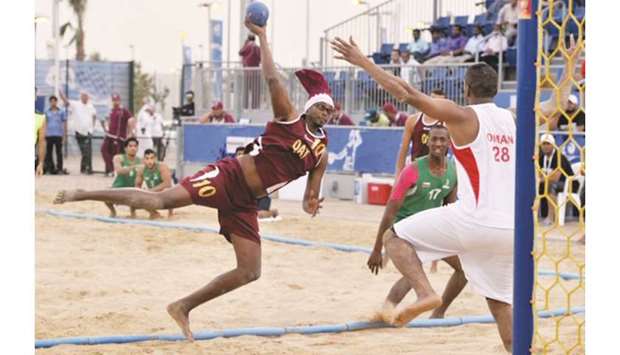When the inaugural edition of the World Beach Games Qatar 2019 officially kicks off in Doha on October 12, all eyes are not only going to be on the host nation but also on the main organisers, Association of National Olympic Committees (ANOC), who are putting together this great competition for the first time.
In establishing the World Beach Games, ANOC aims to open beach sports to the world and provide an opportunity for NOCs to connect with new stars from new beach, water and action sports. The Beach Games is the latest addition to the long list of innovations ANOC has been undertaking in its quest to reform, modernise and professionalise the organisation in order to better serve the needs of the world’s NOCs.
As one of the largest international organisations in the world with 206 IOC-recognised National Olympic Committees (NOCs) and eight NOCs who are not recognised by IOC but recognised by continental associations as its affiliates, ANOC has always been at the forefront of global promotion of sports and it works to protect and advance the interest of all its members.
Historically, the first General Assembly of the NOCs took place in Rome from September 30 to October 2, 1965 but it wasn’t until June 1979 that ANOC was officially formed during the Constitutive General Assembly in San Juan, Puerto Rico with Mario Vazquez Rana (Mexico), who served from 26 June 1979 to 13 April 2012, as its first president. By facilitating and opening up new dialogue, ANOC is committed to forging more productive and collaborative working relationships between NOCs and International Federations (IFs) in particular and it also strives to protect and advance the collective interests of the NOCs by
delivering an unprecedented level of assistance and support as well as strengthening the relationships between the NOCs and the Olympic Family for the benefit of the entire Olympic Movement.
Each NOC under the organisation is affiliated to their respective continental nations – Oceania National Olympic Committees (ONOC), European Olympic Committees (EOC), Olympic Council of Asia (OCA), Pan American Sports Organization (PASO) and Association of National Olympic Committees of Africa (ANOCA).
ANOC is represented in a number of IOC Commissions including the Coordination Commissions for Olympic Games; the World Anti-Doping Agency (WADA); the Court of Arbitration for Sport (CAS); and the International Council of Arbitration for Sport (ICAS), to ensure that the NOC voice is heard within the Olympic Movement.
The General Assembly is the supreme governing body of the Association and under the new Constitution, an Ordinary General Assembly must be held once a year.
All 206 NOCs participate in the General Assembly and the event is also a platform for Olympic stakeholders, especially OCOGs and cities bidding to host the Olympic Games, to address the NOC Family.
Between General Assemblies, Executive Council Meetings must be held at least twice a year. The Executive Council includes members of the five Continental Associations elected for a four-year term. In addition to the General Assembly, ANOC owns and runs a number of other events including the ANOC Awards which was launched in 2014 by the ANOC President Sheikh Ahmad al-Fahd
al-Sabah.
The Awards is an annual event created to recognise the achievements of the NOCs and their athletes as well as distinguished members of the Olympic Family and it provides an opportunity for the world’s NOCs come together in a relaxed and entertaining environment and enjoy an evening celebrating sport.
The awards presented each year vary depending on the sporting events that have taken place that year and are decided by an ANOC jury.
Administratively, the day to day management and operations of the organisation is handled, in consultation with the President, by its Secretary General from its headquarters in the Olympic Capital, Lausanne, where it has been based since June 2010.
Gunilla Lindberg of Sweden, who assumed office in 2004, is presently the Secretary-General of the organisation.

..
